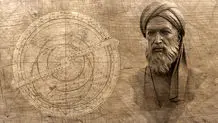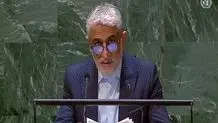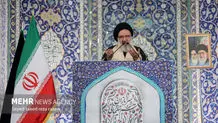Iran marks Information Technology Day
Iranians commemorate Information Technology Day on an occasion that is also the Day of Khwarazmi, a Muslim Iranian mathematician and astronomer.

MEHR: Iranians commemorate Information Technology Day on an occasion that is also the Day of Khwarazmi, a Muslim Iranian mathematician and astronomer.
Iran's knowledge-based ecosystem accounts for more than 3% of GDP and the figure is projected to reach 5%, however, the main goal is to step toward a 10% share of GDP.
The share of knowledge-based companies in the country's economy has exceeded 9 quadrillion rials (about $34 billion), and since 2019, it has experienced a growth of over 450%.
At present, 6,263 knowledge-based companies are operating in the country, offering advanced products and services in various fields of technology to domestic and foreign markets, and some of them have entered international markets.
The fields of aircraft maintenance, steel, pharmaceuticals, medical equipment, oil, and gas are among the sectors that researchers in technology companies have engaged in, leading to import reduction.
On the 22nd day of Tir in the Iranian calendar, which corresponds to July 12th, a day is commemorated in honor of Kharazmi, also known as Information Technology Day.
Al-Khwārizmī is renowned for his significant contributions to mathematics, particularly for his introduction of Hindu-Arabic numerals and algebra to European mathematicians. The terms "algorithm" and "algebra" are derived from his name and one of his works, respectively, as per Britannica.
He gained fame for his mathematical treatises, notably a book on algebra that gave rise to the term itself, and another on arithmetic that brought the Hindu-Arabic numerals and their arithmetic operations to Europe, according to the encyclopedia.
The mathematician's notable achievements revolved around his written works in mathematics and science. His mathematical treatises played a vital role in introducing algebra and Hindu-Arabic numerals to Western mathematicians during the Middle Ages. Additionally, his scientific writings delved into the realms of geography and astronomy, as per historical accounts.
In the 12th century, a scientist introduced Hindu-Arabic numerals and their arithmetic to the West through a work preserved only in a Latin translation, Algoritmi de numero Indorum (“Al-Khwārizmī Concerning the Hindu Art of Reckoning”). The author's name, Algoritmi in Latin, gave rise to the term algorithm.
UNESCO designated 1983 (corresponding to 1362 AH) as the 1500th year since Khwarazmi's passing, urging member states to honor the founder of Algebra with commemorative events.
The Khwarizmi International Award celebrates Khwarazmi's legacy with various annual events, including the prestigious International Khwarazmi Festival held in Iran. This festival aims to promote entrepreneurship, recognize innovators and technologists, support winners, and foster global scientific and technological collaboration. Designs are assessed by sixteen specialized teams based on five criteria.
In 1987, the Iranian Research Organization for Science and Technology (IROST) established the Khwarizmi Award to recognize outstanding scientific and technological achievements in Iran, in honor of the renowned mathematician and astronomer Abu Jafar Mohammad Ibn Mousa Khwarizmi.
The International Khwarazmi Festival was founded in 1987 nationally and internationally in 1992 and serves as a platform for showcasing scientific accomplishments by both Iranian and foreign participants. This esteemed event acknowledges exceptional scientific contributions by researchers, inventors, and innovators worldwide.
The festival's executive process encompasses five competitive sections: domestic projects, foreign projects, projects of Iranians residing abroad, successful projects in national production, commercialized projects by prior award recipients, and special recognition awards for Iranian intellectuals and scientists.




